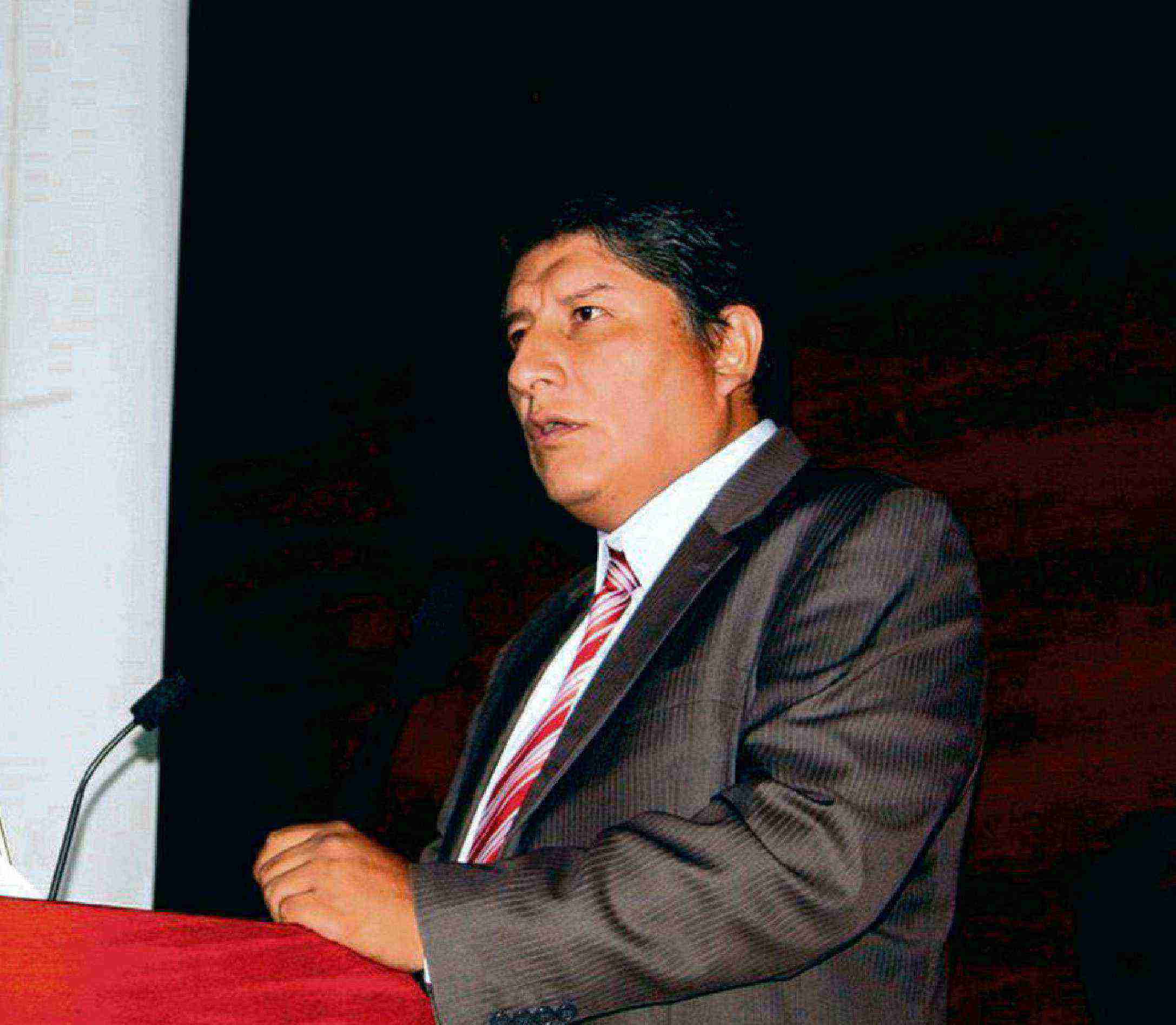Lima, JULY 18 2022Fernando Castillo: "Mining has caused the shortcomings stemming from the economic crisis not to be seen as more critical."

We talked to Fernando Castillo, consultant in Social Management and member of the PERUMIN 35’s organizing committee, who shared with us his expectations about PERUMIN 35, to be held from September 26 to 30 in Arequipa, and his analysis about the social conflict that has caused the halting of important operations this 2022.
What is the importance of the PERUMIN mining convention for the country?
PERUMIN has not only become the meeting point for the global mining industry, but it is also key to boost mining investments in the country. It is currently the main mining event in Latin America and one of the 4 most important events in the world. It has an organizing committee, of which I am honored to be a member.
What is this organizing committee in charge of?
We are in charge of the general guidelines, the planning, and the specifics to achieve not only success, but increasingly higher and better standards of organization, positioning of ideas, and participation of national and international entities. In this line, we have recently held the official launch of the event—which is well advanced—even surpassing some milestones of previous events.
Moving on to a subject in which you are an expert, social management, what is your analysis of the management of conflicts at the country level?
We are going through a very complex moment. There is a very though national context for mining, the extractive activity, and businesses in general. A few days ago, the consulting firm Apoyo published some results regarding the expectation of improvement that the business sector and the country in general had and only 3% of the country believes that things are looking up.
It is very serious, and this is due to a context of political fragility within the public sector, a constant instability in what the decision-making elements mean, which has to do with inter-ministerial coordination, the coordination aspects that the Presidency of the Council of Ministers should take care of with the Ministry of Energy and Mines, as well as the fact that there is a high level of empowerment among the communities.
What do you mean by a high level of empowerment among the communities?
Since last year's election results, the communities have felt that they are governing, so to speak, and they say so everywhere. Also, there is a greater presence of leaders who have monetized the protest. Look, this year 2022, there has not been a single conflict caused by environmental issues; all the conflicts are based on renegotiation of lands, the demand for greater benefits or the delivery of higher amounts than those of previous agreements. It is very delicate because today it is the communities that are breaking the agreements.
What repercussions do the constant conflicts have on the image investors have?
We have a rather fragile, rather weak State, which means that in cases such as Cuajone and Las Bambas, the mines remained closed for 55 and 60 days, respectively. It is incredible to see that Las Bambas is going through a situation in which the time that operations were halted is about 25% of the time that has passed. So, based on that figure, we are facing a process in which 3 out of every 12 months the operation is blocked, and that makes any type of investment unviable. This is a big problem that we are having, in general, in several projects whose production has been blocked.
Some years ago, people talked about implementing a social conflict management system, but it was never done. What solutions could you propose for the issue of social conflicts?
The first thing we must do is to put the State in order. It cannot be that in 42 months the area of Social Management of Energy and Mines has had 17 directors. We are talking about a little more than 2 months per director. It is impossible for someone to do something in 3 months. This is a weakness; first, the lack of capacity to know how to choose and, second, who has been chosen and the fact that they do not have the competencies.
A second element is that the level of rotation of ministers is extremely high. How is it that in this administration we have had 6 ministers of Energy and Mines in 1 year? It is difficult to maintain coherent policies in such time.
It is a government that did not come from a solid party structure.
An additional element is that it is necessary to give confidence and security to the investor. If there is insecurity in a country, if blockades are not attended, if the rule of law is not respected, and if there is impunity for crimes of that nature, it is very difficult for anyone to invest.
Looking at the big picture, although in the world, just in copper, Peru has 17 projects to develop, there are 50 other copper projects in the rest of the continent, and an average of 120-130 scattered around the world. The question is simple: why should an investor come here and not go to Ecuador or to another country that offers better conditions? So, there is a lot of this that needs to be corrected.
We see that Ecuador has even been ranked higher than Peru in the last Fraser Index ranking.
At the last PDAC, the star was Ecuador. Even though we had a very large delegation, and the business sector made an enormous effort for Peru to do well, today Ecuador is the star.
How did this advance in Ecuador's positioning begin?
By providing security to its investors, minimizing conflict, taking into account that investors need certain conditions, not facilities, but conditions to develop an investment. It is about having a stable country, as we had for 20 years, which brought in US$ 70 billion in investment over 20-25 years. Is there fresh investment today? There is no new project. The last ones were Quellaveco, Mina Justa, and the Toromocho Expansion, which came from much further back. We do not have any new projects that have emerged this year. Let us hope that from now on this will improve. We all have to put our shoulders to the wheel to help.
What do you think of President Castillo's first year in office?
I think that, in general, it has been quite bad for the Peruvian economy. Fortunately, Peru has benefited from a rise in copper prices. Let us say that it has been a situation in which copper has given us a greater advantage. Last year we started with US$ 4,500 per ton and closed at US$ 9,800, which generated PEN 14 billion in taxes, three times what we had historically.
Therefore, mining has allowed us not to see the shortcomings that stem from the economic crisis in our country. Agro-exporters have already stopped buying land in Peru; they have been buying land in other countries. The textile industry is asking to see how to protect themselves against dumping. There is not enough oil production in the country; we produce 40,000 and we need 200,000 barrels per day. This makes our country's economy more complex by the day.
In the case of Las Bambas, there is still no definitive solution in sight. What is your take on this social conflict?
It is much more complex because in situations like this, it has been proven that, for example, communities like Huancuire—whose land has been sold twice—want the company to recognize a third sale. Recently a Chinese ambassador declared that Las Bambas had already monetized PEN 1.5 billion in land transfers and that he was not going to execute PEN 1 more. Far from attracting investment, we are scaring people away with this attitude.
Las Bambas is one of the companies with the highest volume of social investment in Peru. Over their 10 years of operation here, they have conducted an exemplary resettlement in the world, one of the few resettlements that has delivered new housing. It has monetized between PEN 600,000 and 800,000 to each community member, and the number of local purchases is one of the highest in the country. Therefore, it is not a matter of standards that are not being met, but about the company being practically extorted by a group of leaders who are looking for greater personal benefit.
Unfortunately, the State does not know much about this, because it has also lost sources of information in the area. I welcome the fact that the Minister of Energy and Mines is correcting part of this with a new team. I see that, in the Presidency of the Council of Ministers, the Premier also has the intention to correct this with the changes he has made lately. We hope to see the results soon.
Finally, what do you think of the recent meeting between the private sector and the Minister of Energy and Mines?
I think it is the first one during this administration, and the valuable thing is that doors are being opened, bridges are being built. Alexandra Herrera is a woman who comes from the mining and environmental sector; therefore, she has both angles to deal with the situation.







